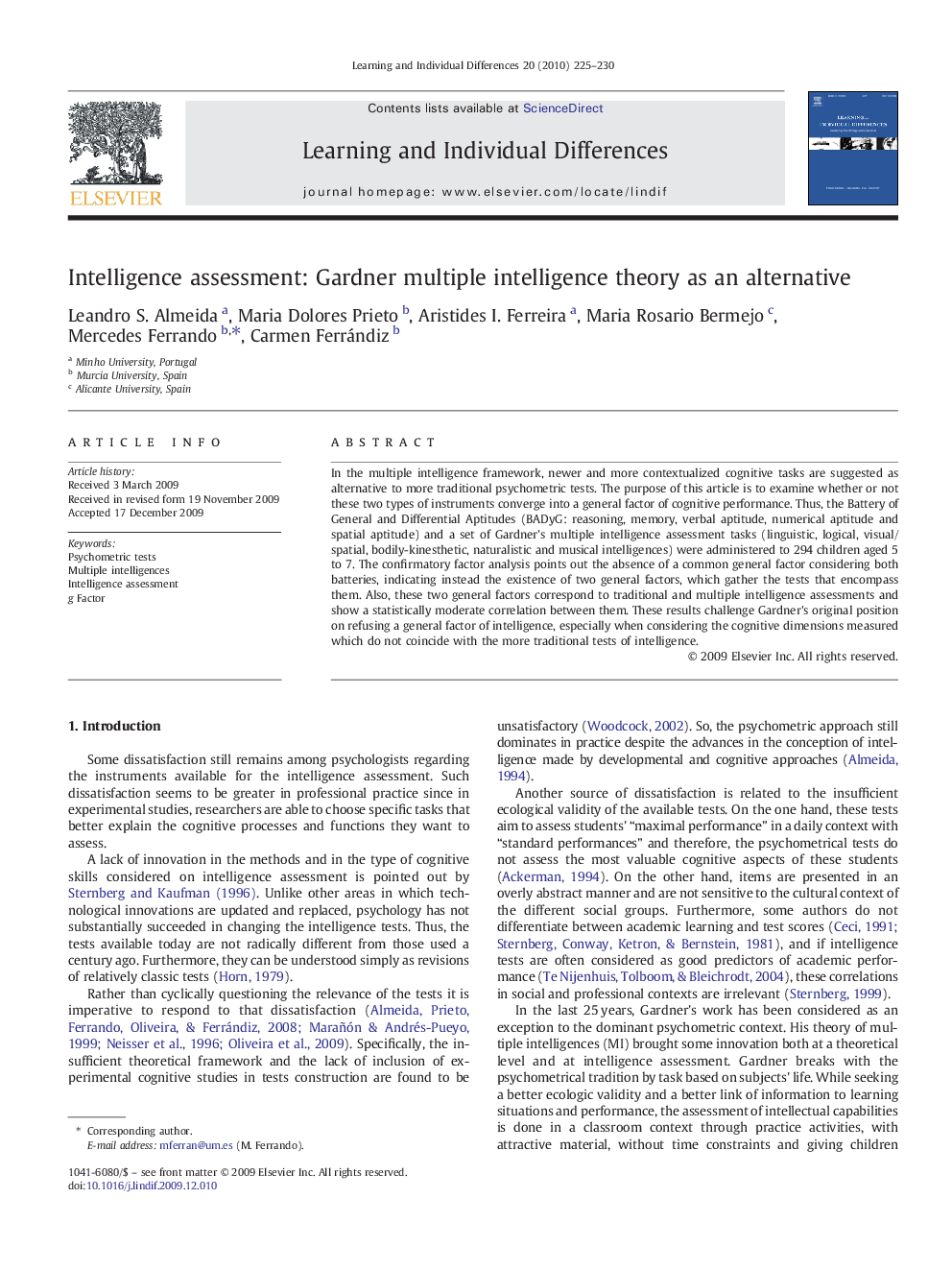| Article ID | Journal | Published Year | Pages | File Type |
|---|---|---|---|---|
| 365122 | Learning and Individual Differences | 2010 | 6 Pages |
In the multiple intelligence framework, newer and more contextualized cognitive tasks are suggested as alternative to more traditional psychometric tests. The purpose of this article is to examine whether or not these two types of instruments converge into a general factor of cognitive performance. Thus, the Battery of General and Differential Aptitudes (BADyG: reasoning, memory, verbal aptitude, numerical aptitude and spatial aptitude) and a set of Gardner's multiple intelligence assessment tasks (linguistic, logical, visual/spatial, bodily-kinesthetic, naturalistic and musical intelligences) were administered to 294 children aged 5 to 7. The confirmatory factor analysis points out the absence of a common general factor considering both batteries, indicating instead the existence of two general factors, which gather the tests that encompass them. Also, these two general factors correspond to traditional and multiple intelligence assessments and show a statistically moderate correlation between them. These results challenge Gardner's original position on refusing a general factor of intelligence, especially when considering the cognitive dimensions measured which do not coincide with the more traditional tests of intelligence.
